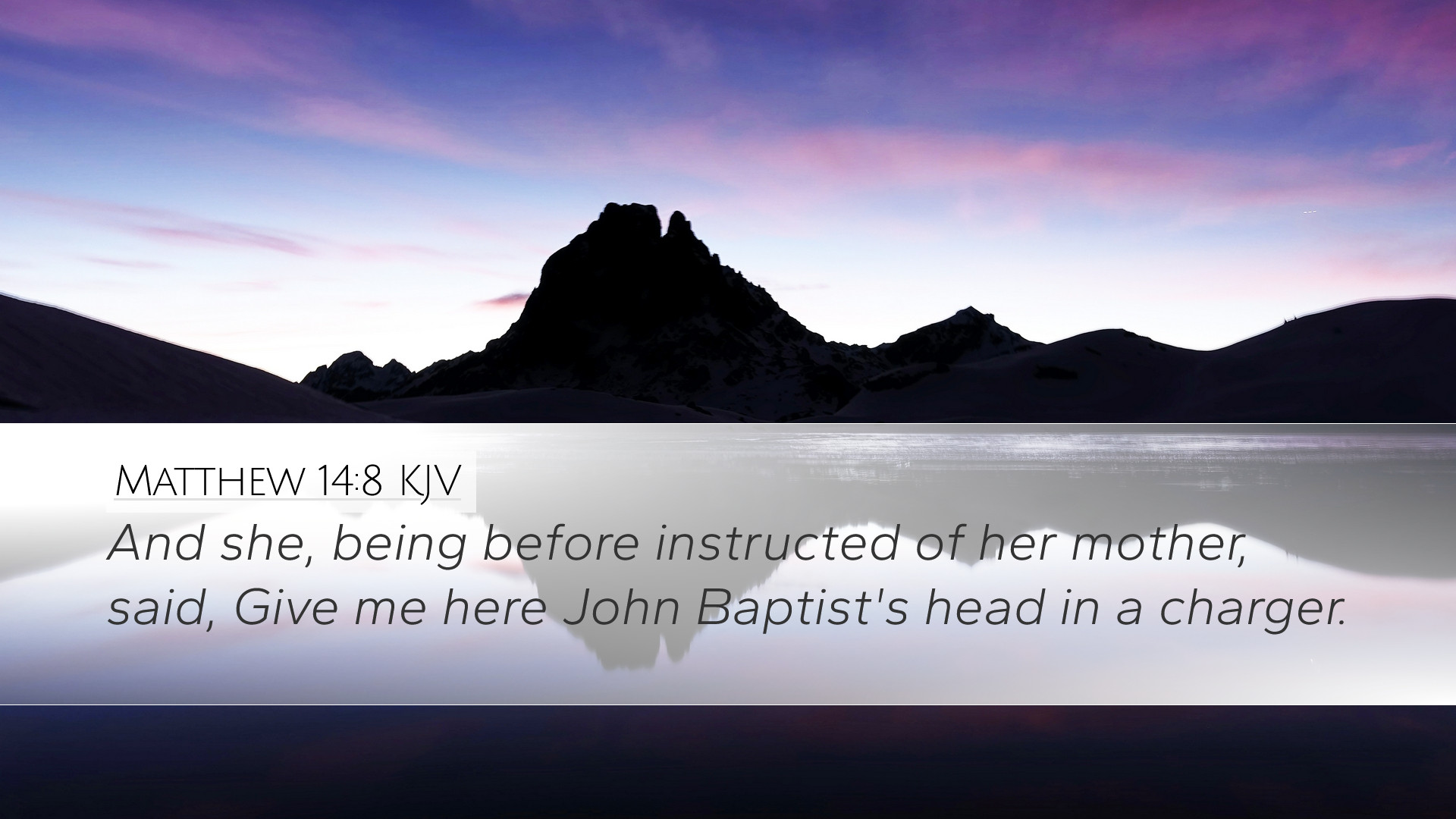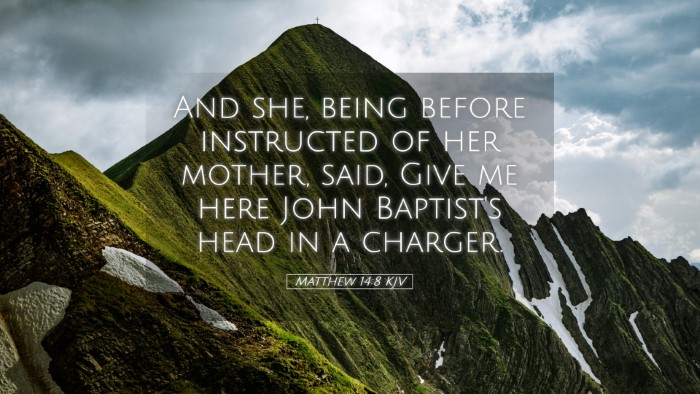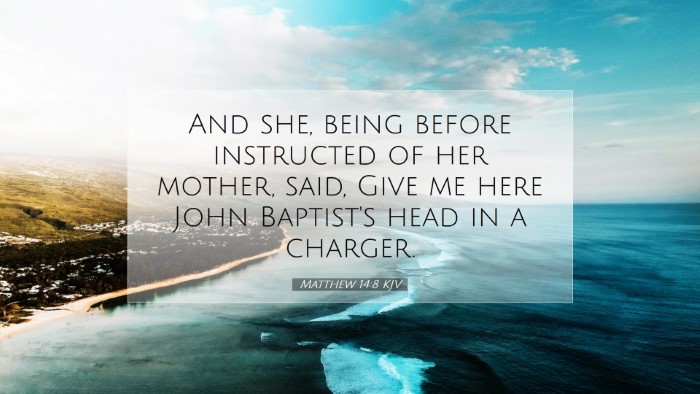Commentary on Matthew 14:8
Verse: Matthew 14:8 - "And she, having been prompted by her mother, said, 'Give me here on a platter the head of John the Baptist.'"
Contextual Overview
This passage occurs within the narrative of King Herod's feast, where Herodias' daughter, often identified as Salome, requests the head of John the Baptist as a reward for her dance. The event highlights the intersection of power, influence, and moral integrity.
Analysis of Key Themes
-
The Influence of Herodias:
Herodias, motivated by a deep-seated vendetta against John the Baptist for denouncing her marriage to Herod, manipulates her daughter into making a gruesome request. The weight of parental influence is stark in this moment, illustrating how a mother can impose her desires onto her child, reflecting personal vendettas.
-
The Symbolism of the Head:
The request for John’s head is significant; it symbolizes the silencing of prophetic voices. John’s ministry chastised Herodias’ lifestyle, representing the moral outcry against sin which she sought to extinguish. Requesting his head on a platter indicates a desire for ultimate humiliation.
-
The Role of John the Baptist:
John’s role in the Gospel narrative underscores the theme of sacrifice. His boldness in confronting sin leads to his death, recognizing that true discipleship often involves suffering. His martyrdom calls attention to the cost of prophetic witness.
Interpretive Insights from Commentaries
Matthew Henry: Henry observes that this request “was a fitting recompense for the wicked dance,” emphasizing the grotesque exchange of pleasure for a life. He draws parallels between spiritual leaders and worldly powers, highlighting how oppressive regimes often seek to silence truth-tellers.
Albert Barnes: Barnes includes a reflection on how the request showcases the depravity of Herodias' heart. He stresses that the demand for John's head reveals her malice and desire for revenge. Barnes notes, “It was a more grievous sin in Herod to indulge such a request than to embody it,” showcasing the moral failing of his leadership.
Adam Clarke: Clarke emphasizes the tragic irony in the fact that a moment of entertainment leads to a grave injustice. He elucidates the notion that the whims of the powerful often lead to the demise of the righteous. His commentary assists readers in reflecting on the broader implications of this moment in history, especially regarding the treatment of those who stand for truth.
Theological Reflections
This verse serves as a poignant reminder of the realities of spiritual warfare. It encourages ministers and scholars to consider the costs associated with fidelity to God’s call. The temptation to compromise or silence inconvenient truths is a continual struggle faced by the Church.
The act of beheading John carries rich theological implications, as it exemplifies the lengths to which the forces of evil will go to suppress the truth. The struggle against sin is presented as a matter of life and death—both physically for John and spiritually for those who witnessed his martyrdom.
Practical Applications for Today
-
Advocacy for Righteousness:
Just as John the Baptist stood firm against Herod and Herodias, so too must contemporary believers advocate for righteousness even when faced with opposition. This passage serves as encouragement for those who face societal pressures that compromise their morality.
-
The Danger of Compromise:
The request made by Herodias’ daughter illustrates how one decision can lead to irreversible consequences. In pastoral ministry, leaders are called to guide congregations away from decisions that could lead to spiritual compromise.
-
The Cost of Discipleship:
John's martyrdom speaks volumes about the cost associated with true discipleship. Believers today are reminded that their loyalty to Christ may lead to suffering, but such sacrifice is part of the vocation of following a crucified Savior.
Conclusion
Matthew 14:8, through the lens of history and theology, continues to resonate with contemporary audiences. It serves as a stark reminder of the implications of our choices and the motivations behind them. For pastors, students, and theologians, this text prompts reflection on the nature of influence, the struggle against evil, and the assurance that even in suffering, God's sovereignty reigns supreme.


